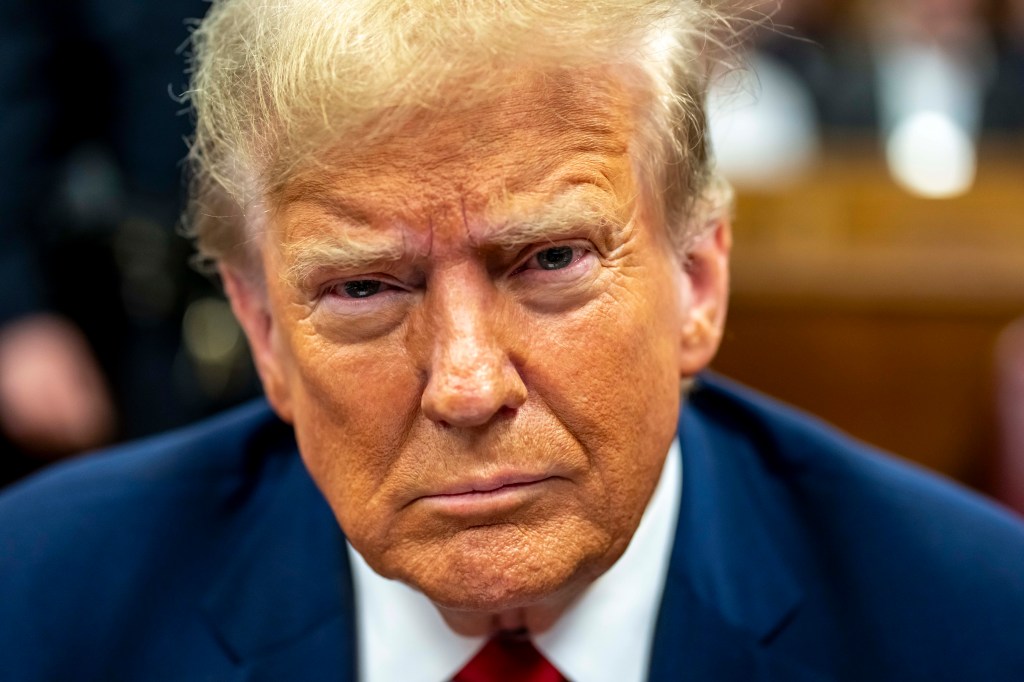Todd Blanche, one of the unhappy attorneys defending Donald Trump in one of the criminal actions against him, insisted this week the former president deserves to continue to be called “President Trump” out of respect, that this is something the former game-show host and quondam pornographer “has earned.” That is pure drivel, of course, but Trump, who has a thing about titles, has insisted for years that employees and sycophants continue calling him “President Trump.”
The continued use of the title “president” before Trump’s name is, of course, a violation of republican norms. We do not have aristocratic titles in the United States—we have job titles, and we have only one president at a time. (Goodness knows one is enough.) Trump isn’t the first ex-president to cling pathetically to the title, though Trump’s insistence takes on a special valence because he also insists that he is the rightfully elected president and attempted to stage a coup d’état in 2021 to hold onto the office. So there is more at work here than etiquette.
But let’s talk about the etiquette a little bit.
The legend of George Washington was modeled on that of Cincinnatus, the Roman hero who personified republican virtue. Cincinnatus was a poor patrician who was made dictator during a time of national emergency and, as soon as the danger had passed, returned to his farm—“back to his plow,” as the story goes—even though his term in office had not expired. It did not matter to Cincinnatus that he could have continued in office for a few more months and that doing so might have been financially rewarding—the question of what Cincinnatus was entitled to was entirely secondary to the question of what his country required from him. That is what real patriotism looks like in action.
Trump fancies himself a kind of American royal. You may recall that before and during his visit to the United Kingdom in 2019, Trump suggested that the younger British royals should hold a “next generation” summit with the Trump children, as though the Trump brats were something like princes rather than reality-television grotesques. The idea of a hereditary Trump aristocracy is particularly galling to those of us who are old enough to remember that one of the arguments put forward for Trump in 2016 was that nominating him would help to put an end to dynastic politics in the United States in an era when the leading figures included Trump’s primary rival Jeb Bush, son of one former president and brother of another, and Democratic nominee Hillary Rodham Clinton, the much-abused wife of a former president. And what happened? In 2024, we have a Trump as co-chair of the RNC while Uday and Qusay continue lingering herpetically around the orifices of the body politic.
An aristocrat is nothing without a title, and the one Trump really favors is “baron,” which was both the name of the imaginary friend he invented to lie to the New York Post about his sex life (which is a totally normal and not at all obviously insane thing to do) and the name of his youngest son. In the United States, we have had steel barons and newspaper barons and even robber barons, but, alas, there are no baronages for reality television programs or for selling cheap polyester ties and knockoff watches at Macy’s. We have had cattle barons, but Trump Steaks were too far downstream to make him a baron. And since Trump Steaks went out of business two months after its launch—who could have guessed that selling meat via QVC would go bust?—the title would not have been an ancient one.
But it takes more than a title to make an aristocrat. The American “natural aristocrat” is not a figment of Thomas Jefferson’s rich political imagination, and we have had a few. Some of them are famous and wealthy, some of them are very cultured, and—this is why I am forgoing names here—few of them enjoy public praise or attention, though many of them are public men by necessity. They tend to have very good manners, and by that I do not mean knowing which fork to use for which course but the talent for making other people feel valued, honored, and at ease. They can do that because they have no reason to be jealous of their own positions—they can be generous with grace and applause for the same reason a very wealthy man can be generous with money: They are not worried about running out. Donald Trump is, to say the least, not one of these. He is the very opposite type, the man who needs to be “the bride at every wedding and the corpse at every funeral.” Strange that he doesn’t seem to be enjoying his trial more.
The title business can get comical. We get vitriolic denunciations of the Chinese Communist Party from a legislator who insists on calling himself Chairman Smith. Newt Gingrich is still “Mr. Speaker” to the dinosaurs on Fox News, although he held the office in a prior century—he left the speakership before Ice Spice had even been born! Nikki Haley is still “ambassador,” as though she were an envoy from some faraway planet where Republicans didn’t suck quite so badly.
And so Trump will insist that he is “Mr. President.” P01135809 suited him better, and something along those lines may await him still.







Please note that we at The Dispatch hold ourselves, our work, and our commenters to a higher standard than other places on the internet. We welcome comments that foster genuine debate or discussion—including comments critical of us or our work—but responses that include ad hominem attacks on fellow Dispatch members or are intended to stoke fear and anger may be moderated.
With your membership, you only have the ability to comment on The Morning Dispatch articles. Consider upgrading to join the conversation everywhere.